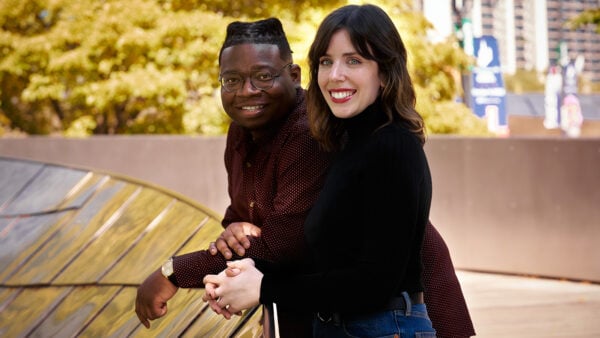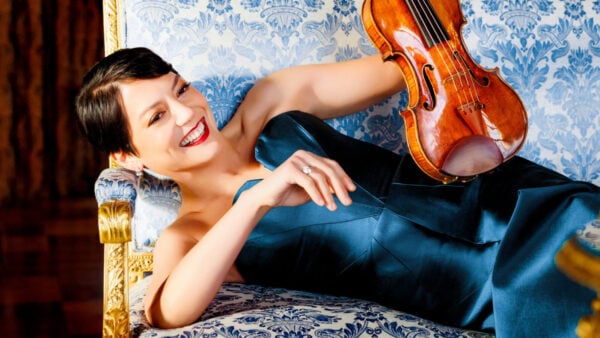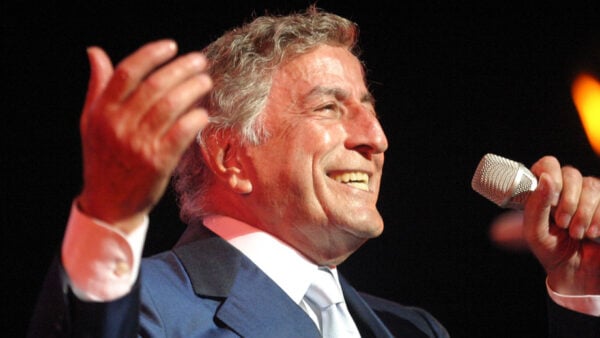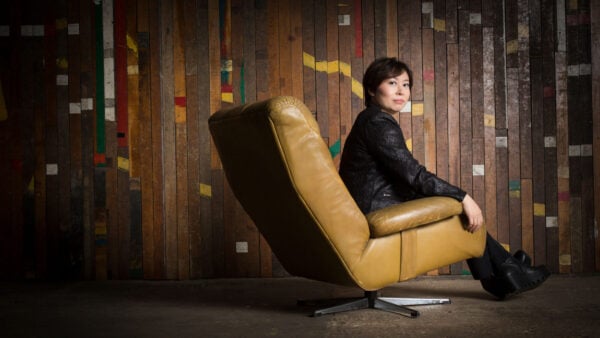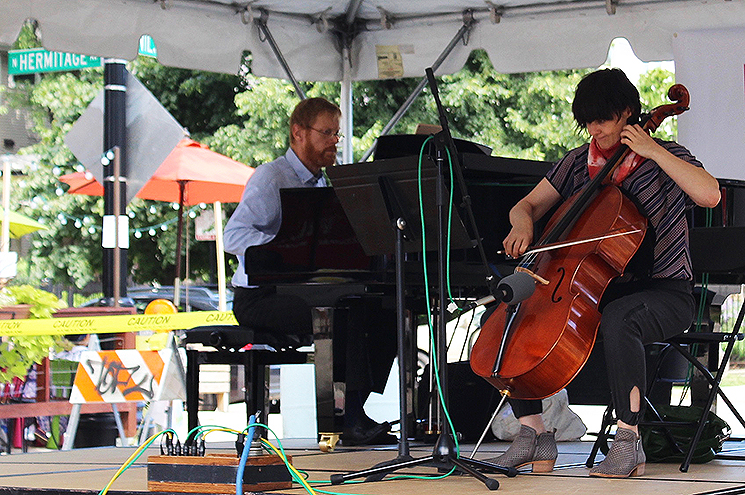
Pianist Sebastian Huydts and cellist Katinka Kleijn of the Chicago Symphony Orchestra open up the Thirsty Ears Festival with music by Beethoven and Falla
In the summer, Chicago is teeming with block parties and street fests. Over the weekend, the Thirsty Ears Classical Music Street Festival filled the block of Wilson Avenue between Ravenswood and Hermitage with music you won’t likely hear at other Chicago street fests – or at least, not in this format.
Thirsty Ears, a two-year-old project of the Chicago organization Access Contemporary Music, is the city’s only street festival devoted to classical music. This year, the festival presented fifteen local ensembles over the weekend of August 12-13.
Diverse, hour-long programs included pieces from the standard classical canon as well as new works by Chicago-area composers. Audiences heard Stacy Garrop’s mythological Legends of Olympus performed by Gaudete Brass; as well as music by Jonathon Kirk, the resident composer and electroacoustician of the Picosa Ensemble; and Mischa Zupko, who accompanied Sang Mee Lee in a reduction of his recently premiered Violin Concerto.
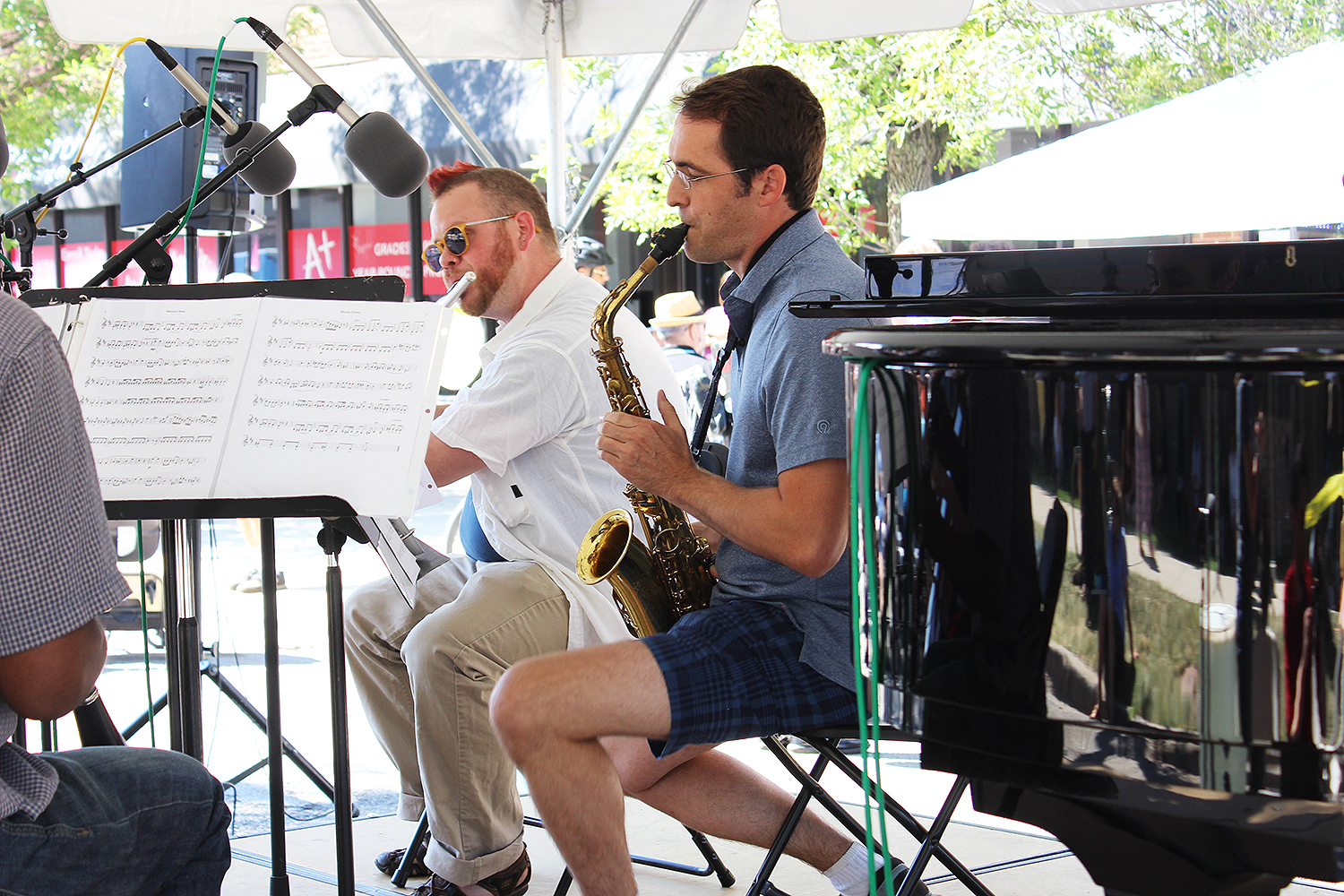
Amos Gillespie, alto sax, and Trevor Patrick Watkin, flute, performed with the Amos Gillespie Quartet
According to Seth Boustead, Access Contemporary Music’s founder (and the host of WFMT’s Relevant Tones), a focus on living composers is a crucial part of the mission of the young festival, which added a second full day this year.
“We’re putting a diverse face on classical music,” Boustead said. “By introducing people to relatable, living composers, we hope that they’ll find their way back to this art form.” He pointed out that situating new works and the composers themselves (in the flesh!) on a street corner “challenges some of these stereotypes that classical music is elitist, it’s in a concert hall – that you have to dress up, and you can only clap at certain times.”
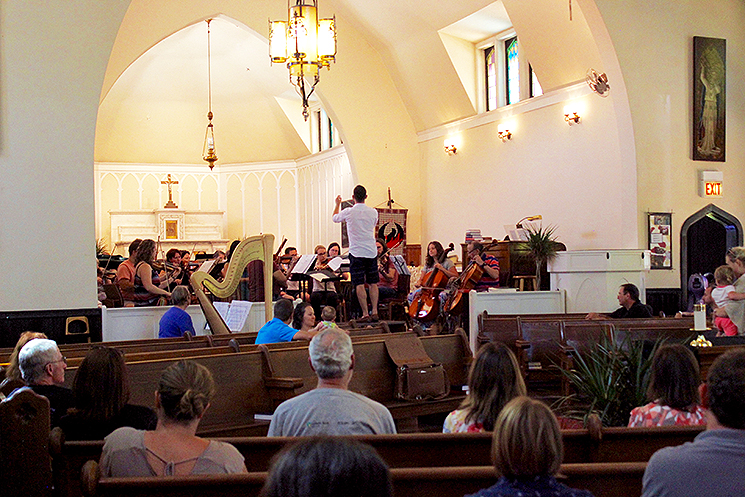
The Ravenswood Community Orchestra plays the 1st Promenade from “Pictures at an Exhibition” by Modest Mussorgsky at All Saints Episcopal Church on Hermitage
True to form, most page-turning breaks between movements during the festival were punctuated by enthusiastic applause from audience members. In a more traditional concert hall setting, these pauses are typically filled with cached coughing and shameful glares at anyone who dares clap.
At Thirsty Ears, many spectators sipped beers and devoured pommes frites served up by local vendors while listening from a folding chair on Wilson or leaning on the trunk of a curbside tree. Curious pedestrians, cyclists, and cars on their way down Hermitage Ave. frequently stalled behind the stage to get a glimpse of the proceedings.
Concert etiquette wasn’t the only notable classical music stereotype challenged during Thirsty Ears. The average listener age was brought down considerably by a cadre of young children accompanied by their parents, for whom a special section of programming was planned.
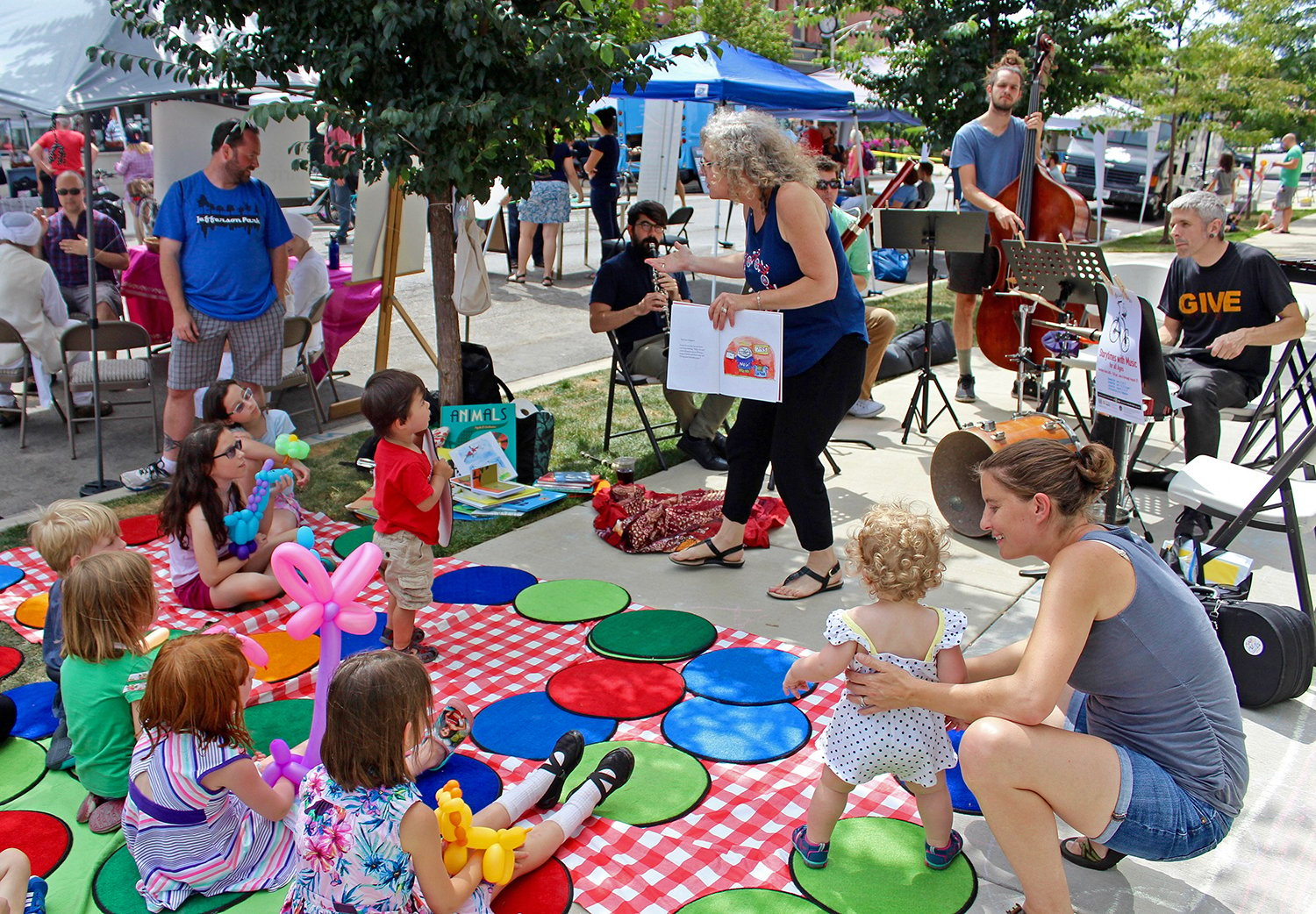
Young music lovers enjoy storytime with The Lucky Trikes
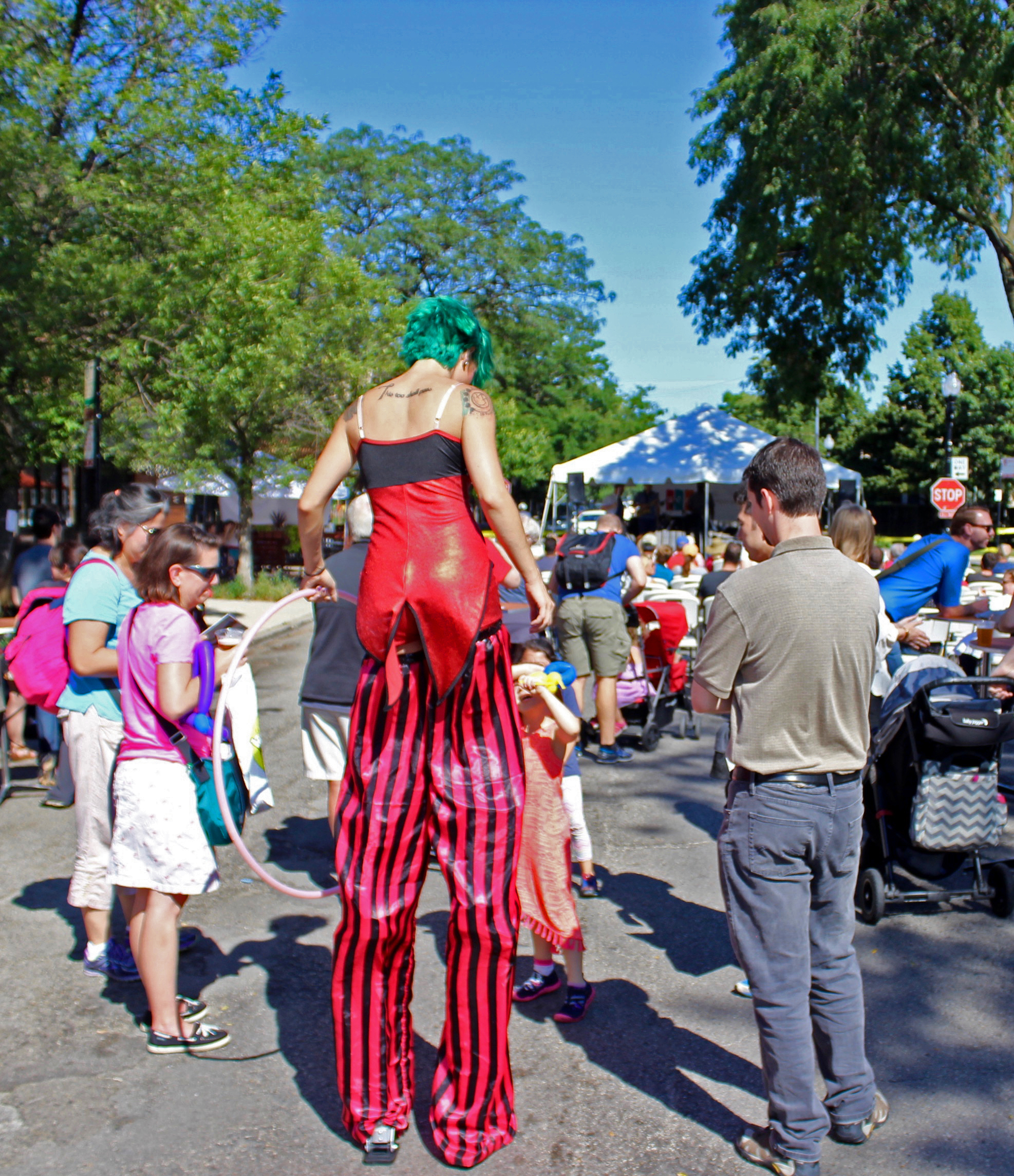
Standing tall on stills to get the best views of the stage at Thirsty Ears
The Lucky Trikes’ Deirdre Harrison entertained a rapt audience with her animated storytelling, accompanied by improvising “third wheels” on percussion, bass, clarinet, and bassoon. WTTW’s Big Ideas van was also on hand with a multimedia performance. Many children engaged with the big-kid music on the main stage as well, jumping and dancing without inhibition.
AC Music’s board president, film composer Tony Scott-Green, was thrilled at the crowds that lined the street and the sidewalk. “It’s getting people out of their comfort zone and into something they might not know they enjoy yet,” he mused in between the strains of a Haitian string quartet played by Crossing Borders Music that floated back to where we stood among chatting listeners. “We’re cultivating the vanguard and bringing it to the mainstream. That’s the goal, I think.”
You can hear some of the works played at Thirsty Ears this year on the latest episode of Relevant Tones. Learn more about Thirsty Ears by visiting Access Contemporary Music‘s website.

